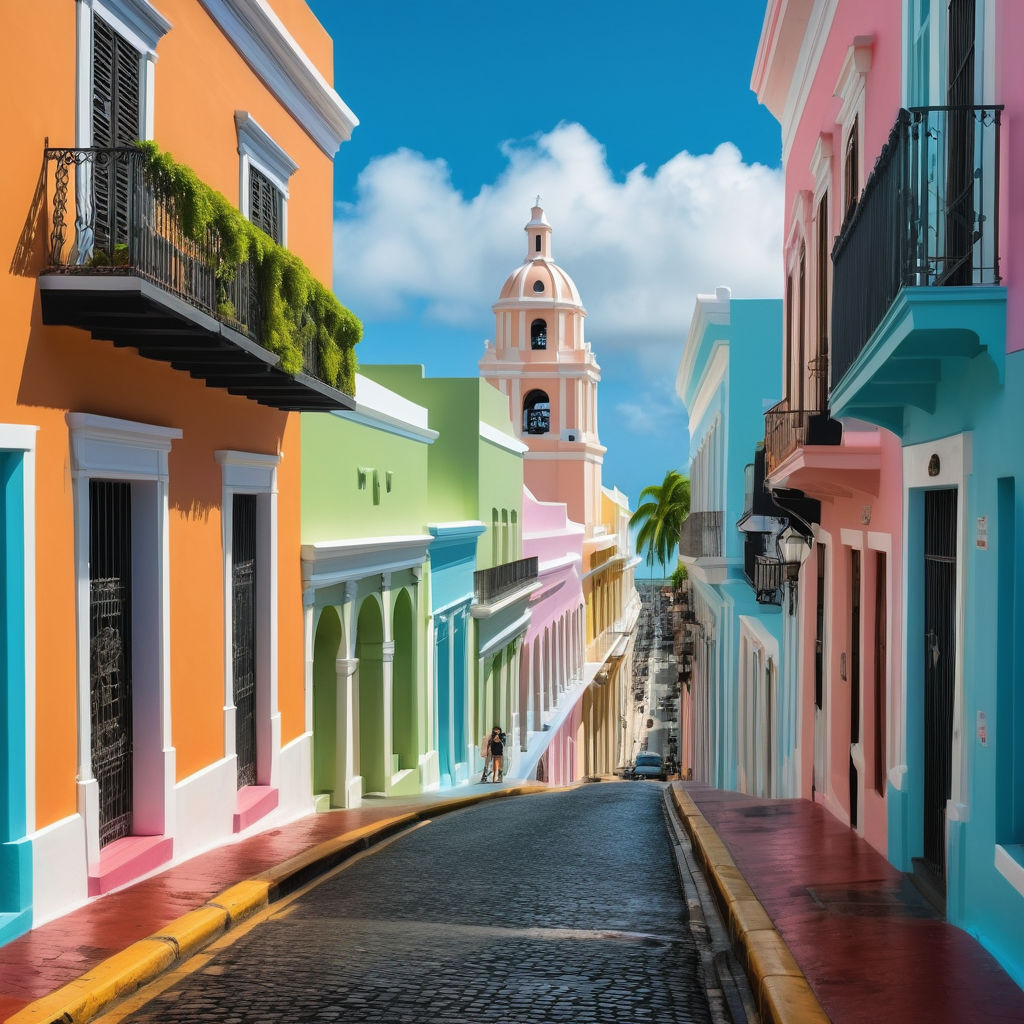Discover Puerto Rico: Caribbean Beauty and Rich Cultural Heritage
Exploring Puerto Rico's Unique Blend of Taíno, African, and Spanish Influences

Introduction to Puerto Rico
Puerto Rico, a Caribbean island and unincorporated territory of the United States, is located east of the Dominican Republic and west of the Virgin Islands. Known for its picturesque landscapes, Puerto Rico features lush rainforests, mountainous regions, and beautiful beaches. Major cities include San Juan, the vibrant capital known for its colonial architecture and lively nightlife; Ponce, famed for its cultural festivals and historical landmarks; and Mayagüez, recognized for its academic institutions and research centers. Puerto Rico's cultural heritage is a rich blend of Taíno, African, and Spanish influences, which is reflected in its music, dance, cuisine, and festivals.
Cross-national and Cross-cultural Understanding
Puerto Ricans generally perceive and engage with other cultures with a sense of openness and curiosity. As an island with a history of diverse cultural influences, Puerto Rico has a strong tradition of cultural exchange and international collaboration. Educational programs, such as the University of Puerto Rico’s exchange programs, foster cross-cultural understanding by allowing students to study abroad and experience different cultures firsthand. International partnerships with institutions in the United States, Europe, and Latin America also play a crucial role in promoting cultural exchanges. Events like the Festival de la Palabra, an international literary festival, bring together writers and artists from around the world, promoting dialogue and cultural exchange. These initiatives help broaden the perspectives of Puerto Ricans, enhancing their appreciation for global diversity.
Interactions and Social Dynamics
Interactions between Puerto Ricans and foreigners are typically characterized by warmth and friendliness. Puerto Ricans are known for their hospitality, often going out of their way to make visitors feel welcome. Social behaviors emphasize respect, politeness, and personal connection. When greeting someone, a warm handshake or a kiss on the cheek is common, reflecting the island's blend of Spanish and Caribbean customs. Communication styles in Puerto Rico are generally expressive and animated, with an emphasis on building rapport and trust. Conversations often include discussions about family, culture, and current events. Language plays a pivotal role in these interactions; while Spanish is the official language, English is widely spoken, especially in urban areas and tourist destinations. This bilingualism facilitates smoother interactions and helps bridge cultural gaps.
Views on Dating and Relationships
Dating and relationships with foreigners are approached with a mix of traditional values and modern openness. Younger generations are more open to cross-cultural relationships, influenced by exposure to global media and travel opportunities. Family plays a significant role in the progression of relationships, and introducing a foreign partner to one’s family is considered a crucial step. Cultural expectations in dating can vary, with a strong emphasis on respect and family values. Public displays of affection are generally accepted, though they are often more subdued in rural areas compared to urban centers. Understanding and navigating these cultural nuances is essential for successful cross-cultural relationships in Puerto Rico.
Marriage and Family
Marrying foreigners in Puerto Rico involves various cultural, legal, and social considerations. Intercultural marriages are relatively common, reflecting the island’s diverse cultural landscape. Legal requirements for marriage are straightforward, but couples may need to address specific cultural and religious traditions to ensure family acceptance. Puerto Rican weddings are vibrant celebrations that blend traditional and contemporary elements. They often include religious ceremonies, festive receptions with music and dance, and elaborate feasts. Cross-cultural marriages bring together diverse traditions, enriching the cultural tapestry of Puerto Rican society. However, these marriages also require mutual respect and understanding of each partner’s cultural background.